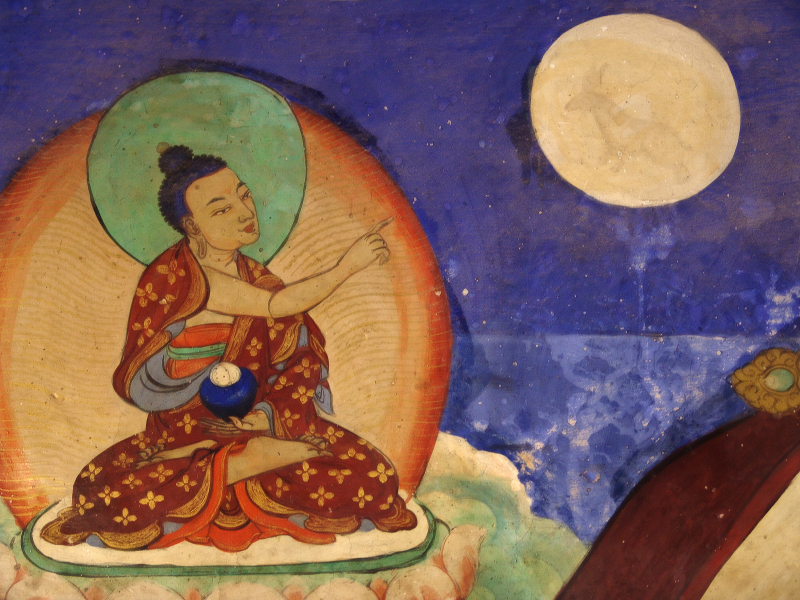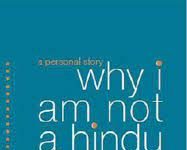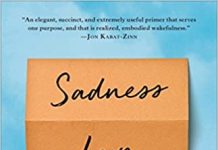This piece of writing comes from a sense of immense gratitude as well as responsibility. For a lot of people who have passionately stepped into the vocation of teaching and even as adults feel deeply about children’s books, films and other sources of exposure- coming across a good piece of work gives a sense of immense happiness and compels one to share it with those around. I am enveloped by this feeling each time I stumble upon a good book, happen to see a sensitive children’s film, come across a game that arouses my imagination or meet a person who loves and reinvents teaching-learning.
It is in this context that today I would like to talk about a Hindi title for children called ‘Mahila Padh-Likh Le T0?’ Published by National Book Trust, India. The compact and illustration led book written by Varsha Das strikes a note right from the beginning. In a matter of just twelve pages(where each page is artistically designed to accommodate big illustrations accompanied by a couple of lines)the book talks about the kind of difference that literacy (knowing how to read, write and do basic arithmetic) can bring to the lives of women.
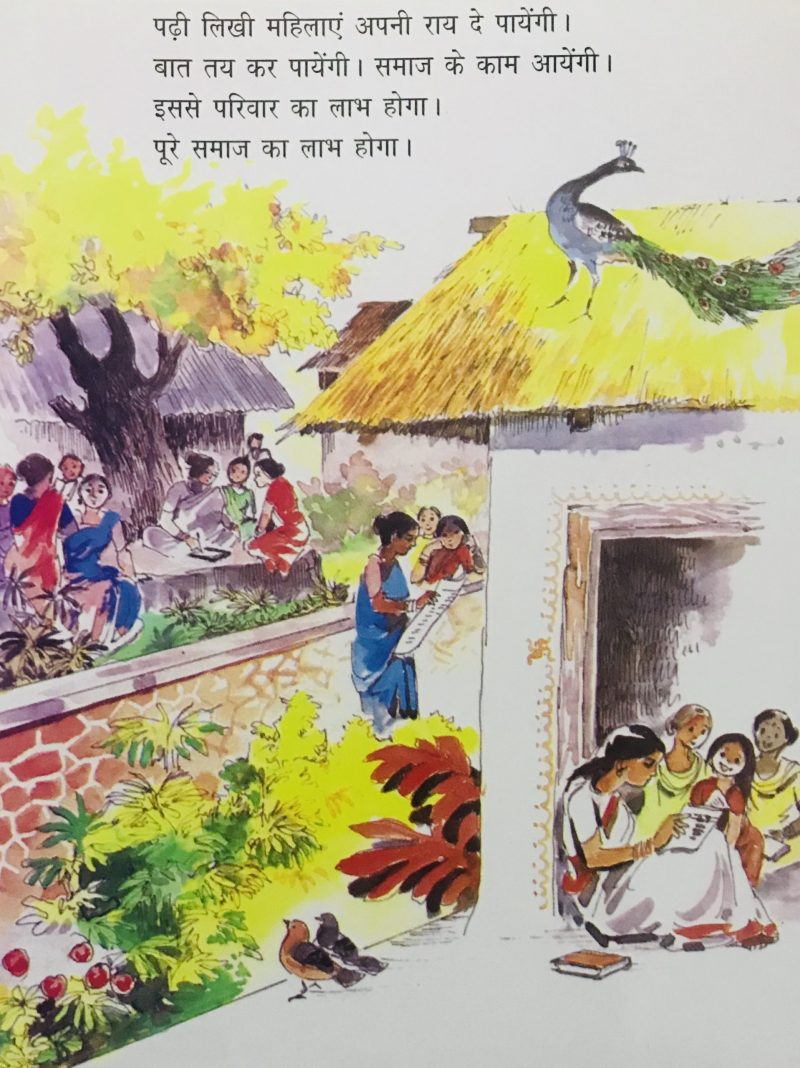
The main intention of the book seems like making it amply clear that its not only women with a professional or career orientation for whom education is important, Varsha Das suggests that even ordinary women such as those employed at the construction sites waiting for their daily wages or housewives engrossed in nurturing and care taking work would gain immensely if the light of education were to enter into their lives and they would themselves see how it would give them a sense of empowerment and dignity and alter their existences forever.
For many of us who have lived in rural India for example or have had the opportunity to interact with communities where literacy is low, we would have all observed that there is a reluctance/inhibition among the womenfolk especially about giving their own educational journeys a chance especially when they have had children or have reached a significant age. The argument they generally give is centred on the notion that education is mainly for the children or for those who have a larger part of their life still left or those who are seeking employment and that for women confined to domestic work, education is not a very useful prospect. This reluctance or sense of indifference can also be seen as one of the reasons for the lukewarm or even cold performance of adult literacy programs targeting people who are already in the workforce and women who are confined to the four walls. But what makes Varsha Das’s book stand apart is how she makes the young reader see the importance of education not only in her own life as a child but also for the women around her like her mother or aunt who may be school dropouts or illiterate or other women in the neighbourhood whether it is the women lifting bricks at the construction site, women at the factories or even women primarily engaged in domestic chores. The point is that whether you stay confined within the four walls of the house or whether you wish to build a career for yourself, education helps to give your life a complete transformation and allows you to feel empowered and in control of your life.
An Educated Mother: an Empowered Childhood
Many people who have thought about education have laid emphasis on the environment of the home as a very important aspect of the learning trajectory of a child. In a home where the parents themselves are educated and value education, the mother knows reading- writing- arithmetic, there is a greater chance that in such a household the education of the child will be given priority, an environment of learning will be encouraged and the child will grow up to be relatively independent and capable of serving the society as well as fending for his family’s needs. In a home where the light of education has reached, there is far lesser chance of the persistence of social evils like child marriage, dowry, domestic violence and child abuse but in the absence of education the chances of exploitation and vulnerability are far more.
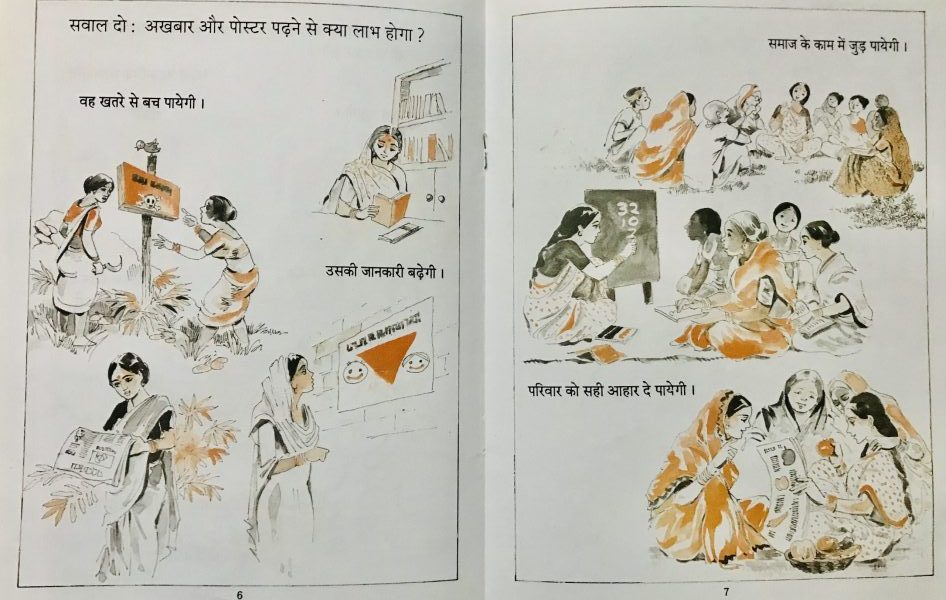
A loving mother is a treasure but an educated and learned mother is an asset whose important cannot perhaps be described in words.
Educated women do even their household chores better than uneducated women, educated women know when they are being exploited and fight for their rights, educated women speak up against the wrongs of society, educated women are more independent and in control of their lives compared to their uneducated counterparts.
Apart from this, educated women can also look after their family’s nutrition and health needs, can maintain a record of family expenses and budgeting, know the importance of cleanliness for health and hygiene, deal with basic emergencies without panic, can assist children in their learning and can travel and do basic tasks like depositing-withdrawing money from the bank, using public transport, buying-selling in the market or even read-write and know about their surroundings as they are more aware and empowered and thereby far more valuable resources for both the family and the community than their uneducated counterparts.
Varsha Das Highlights the Difference that Education Can Bring About in a Woman’s Life
She tells us that in this world there are millions of uneducated/illiterate women who do a great number of tasks each day such as taking care of the sick at home, collecting water from distance for domestic needs, cooking, looking after kids etc. But what difference will it make to women’s lives if they are educated? Varsha Das comes up with mundane instances from our lives where being educated can make a great amount of difference – a women who is educated can read the number of a bus on her own and determine its route without asking anybody else for help, she can sign and no longer needs to leave a thumb impression, her ambit of awareness will expand and she will become more aware of her surroundings, she can read and write letters on her own, she can ensure a balanced diet for the family and even be a better mother. Added to these, education would help her stay away from threats, become more aware, be productive towards social work, be capable of counting her wages and fighting back if exploited, opening a bank account and knowing about financial transactions, she will be able to take important decisions independently, become important agents of social change, bring new light into the family and the community and make the society as a whole a lot more healthy and prosperous.
Jagdish Joshi’s Illustrations Weave Magic into the Text
As much as one appreciates Varsha Das’s remarkable imagination and her ability to make such an important issue easily understandable and communicable through her lucid writing, one must not forget the wonderful illustrations by artist Jagdish Joshi that bring alive all the pages of the book. It is through these illustrations that every word of the text comes alive and for the young reader, it only creates a greater impact and strengthens the message of the text.
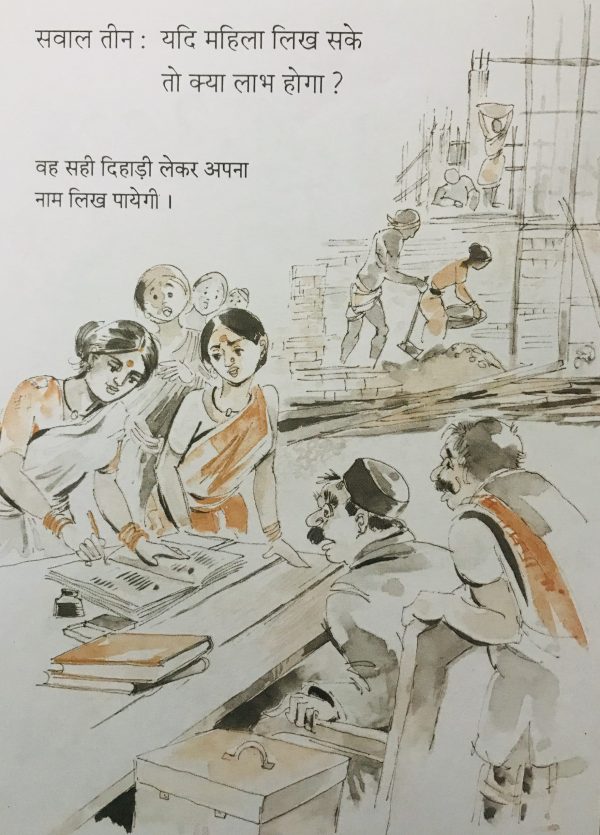
The play of colours, the vibrant faces of the characters, the illustrations of the village folk engrossed in their daily chores or the pages that show women demanding their due wages at the construction site or offering their services for the welfare of the community are truly a valuable addition to the book.
A Feminist Text But a Humanitarian Purpose
Women’s issues are in reality issues of the society as a whole and it is only when we educate, empower and fight against all the evils being inflicted upon women that we can aspire for a humanitarian society.
It is for this reason that I see this text as more than just a feminist text, I see it as a humanitarian text that must be widely disseminated within the community and must be read by not just young readers but also parents, teachers, community workers, grassroots organisations, civil society bodies and state led agencies and everyone else who is devoted to making the world a better place to live in.
I also feel that for women who are uneducated, this book must be read out to them as it will certainly make them reflect on the void that denied access to educational opportunities has had on their lives and maybe once they realise it they will give education another chance and reembark on the learning journey. It is also a good idea to have this book translated in as many Indian languages as possible and for each one of us who has had the opportunity to read it, to gift as many copies as possible to others around us. I recommend it to others and feel that while this may be a positive beginning, we must continuously aspire to encourage and motivate more and more women across caste, class, age barriers to educate themselves and to become independent and capable of defining their own life trajectories. Perhaps it’s for the cause of a better world that education for women must be promoted.
- Ananya Pathak is co-founder of The New Leam.


